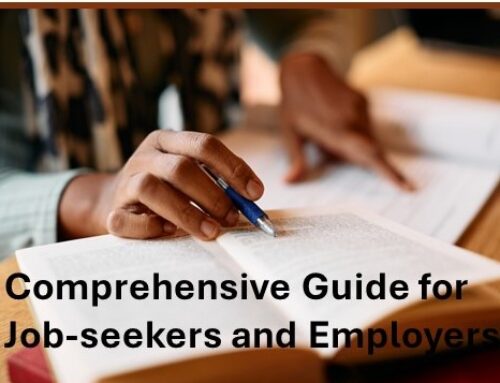
Whether your job keeps you indoors or out, winter brings the challenge of staying healthy. Along with the cold, winter brings respiratory diseases ranging from the common cold to pneumonia.
Working indoors exposes people to viruses and bacteria that cause illness. Spending so much time inside exposes us to germs. People are in close proximity, allowing the transfer of the infectious agents via a cough or sneeze. Also, touching surfaces like doorknobs or elevator buttons spreads bacteria or viruses. But being outdoors all day also carries its risks. Breathing cold, dry air all day may weaken your resistance. Regardless of which work environment you experience, the risk of illness increases.
The common cold, flu, bronchitis, pneumonia, and COVID are all contagious. Viruses (which do not respond to antibiotics) cause some, and bacteria (which do respond to antibiotics) cause others. So when should you be worried? Understanding the different symptoms will help you decide whether to stay home and when to seek medical help.
The common cold is a virus that affects your nose and throat. Medicine cannot cure it. You may be contagious for about a week, so if you feel well enough to go to work, wash your hands often. A mask will help contain any virus you may spread by coughing or sneezing.
The flu is also a virus and causes exhaustion, fever, and body aches. Getting a flu shot will help prevent infection, but the success rate is not 100%. While a flu shot prompts your body to produce antibodies, it takes a few weeks to build immunity. October is the best time to get vaccinated. People often believe the flu is a worse version of the common cold, but it can be quite serious, causing between 12,000 and 52,000 deaths yearly.
Bronchitis develops from a cold or the flu, so the flu shot may also help prevent bronchitis. Since bronchitis inflames the bronchi in your lungs, smokers or people who suffer from allergies may be more susceptible. The main symptom of bronchitis is an unending cough. Your Dr. may prescribe antibiotics for this if it develops into pneumonia.
Pneumonia causes tiny sacs in your lungs to fill with mucus and fluid. Again, smokers are at a higher risk. Viral pneumonia will be treated with rest and fluids. Bacterial pneumonia will receive a round of antibiotics. Both are contagious.
Finally, COVID is still a risk. While life has returned to normal for many people in the US, COVID has not gone away, and people still die from it. Booster shots are available to counteract the latest variant.
How can you best protect yourself? Take advantage of any vaccines. Stay rested and wash your hands often. And though we’re all mightily sick of them, wearing a mask provides protection.
Gillmann Services wishes all our employees a healthy winter season. If you’re looking for a job with a company that cares, Call us today! We will assist you in finding the best match for you.





